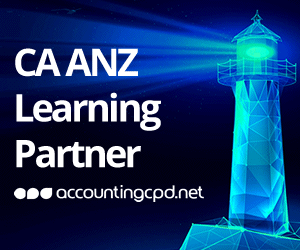The value of Tikanga Māori in the workplace
Educating and supporting our members as they expand their knowledge of tikanga, kawa and Māori values.
If you are interested in sustainable growth, diverse investments and long-term client relationships, the multi-billion dollar Māori economy is calling out for chartered accountants.
According to a 2017 report by Chapman Tripp, the Māori economy is worth $50b and set to grow as more Treaty of Waitangi settlements are reached.
For Tertia Whitcombe, CA ANZ Māori Sector Leader, the significance of this growth is not just monetary, but in the increasing overlap between economic trends and the values held by Māori businesses.
"We want to educate and support our members as they expand their knowledge of tikanga, kawa (protocols and customs) and [Māori] cultural values," says Whitcombe.
"It's about more than just finance - it's about concepts of sustainability, protecting the environment for the future, and giving back to communities," she says.
"Those are really strong values for Māori businesses, and more and more non-Māori businesses are embracing the same goals."
Working with this growing economy means learning about new ways to operate, and adopting new mindsets. One of Whitcombe's projects is establishing online wānanga (courses) in partnership with Tutira Mai NZ, specialists in cultural competency training.
While Tutira Mai wānanga have tended to be immersive experiences at marae around the country, the impacts of COVID-19 meant a little creativity was needed.
"For CA ANZ, online workshops are brilliant because we can reach a lot more people, and people who sign up really love that they can easily get involved," she says.
Cultural competence is a relatively new field of professional development. Workplace diversity is an important component, but so too is understanding tikanga - the principles and protocols of how Māori do business.
Course facilitator Wairangi Jones, of Tutira Mai NZ, says many course participants sign up because they lack confidence and fear making mistakes in an unfamiliar context.
"[Participating in the wānanga] means that when they are at iwi shareholder or trust meetings, and it's on a marae, they are aware of the protocols," he says. "It's not just what to do when you arrive, but how the meetings run because that can be very different from what you are used to."
Pronunciation and confidence with te reo Māori is a key focus, given the importance of good communication when it comes to reporting financial information.
"You have to make sure you have the right pronunciation when presenting financial reports, and be accurate when that reporting involves te reo," says Jones.
Beyond overcoming uncertainties with language and protocols, Whitcombe says the value for CA ANZ members is in the opportunities that open up to those who are strengthening their cultural competence.
"There's not yet enough servicing of the Māori economy," she says. While the number of Māori accountants is growing, there is still a high demand for CAs who are passionate about working with Māori businesses.
"Building these strong, long-lasting relationships is a cornerstone of the way Māori businesses operate."
According to Whitcombe, the emphasis on building relationships from the outset sticks with those who have completed the courses.
"[Tikanga dictates] that before you do business, everybody should know everybody and make connections," she says. "With these courses, it's not about someone talking at you in a lecture format - it's personal, and you get to know everyone, which is very much how it works on a marae."
Building these strong, long-lasting relationships is a cornerstone of the way Māori businesses operate. According to Jones, that is a concept with enormous potential for those willing to engage.
"The idea of engagement lines up with our whakapapa: it's there forever," he says. "For CA ANZ members, it's important to look at how they can nurture these relationships so they are there long-term."
For example, Jones says, there is the Tuaropaki Trust, which has diverse investments in businesses both in Aotearoa and abroad. The trust’s relationship with its accountant dates back forty years and demonstrates the value of long-term partnership.
"They fly under the radar, and yet they produce freeze-dried food for the space programme in the USA, they have their own power station, and have a programme that sends young people off to Harvard University," he says.
Jones says iwi actively seek financial advice but place a lot of stock in those who take the time to look beyond the numbers and figures.
"It's about kanohi ki te kanohi - doing things face to face, and always being seen," he says. "Their accountant [at Tuaropaki Trust] turns up to every tangi…and has a very close relationship with the iwi trustees."
This involvement is a sign of a well-nurtured relationship, says Jones, and the closeness is mutually beneficial.
"People know the accountant is taking them seriously and that they matter, which is key," he says. "And it's good for that accountant, because there's a lot of people in that iwi, and they all know who to talk to when they have a new business opportunity."
Whitcombe shares the sentiment and encourages CA ANZ members to make the most of opportunities to gain new perspectives.
"I really like that we use the term 'difference makers' because being a CA is about seeing how and where you can make a difference," she says. "And looking after your community and your environment is really the way Māori look at the world."
Māori Accounting
CA ANZ is committed to educating and supporting our members in Tikanga Māori.
Find out more
